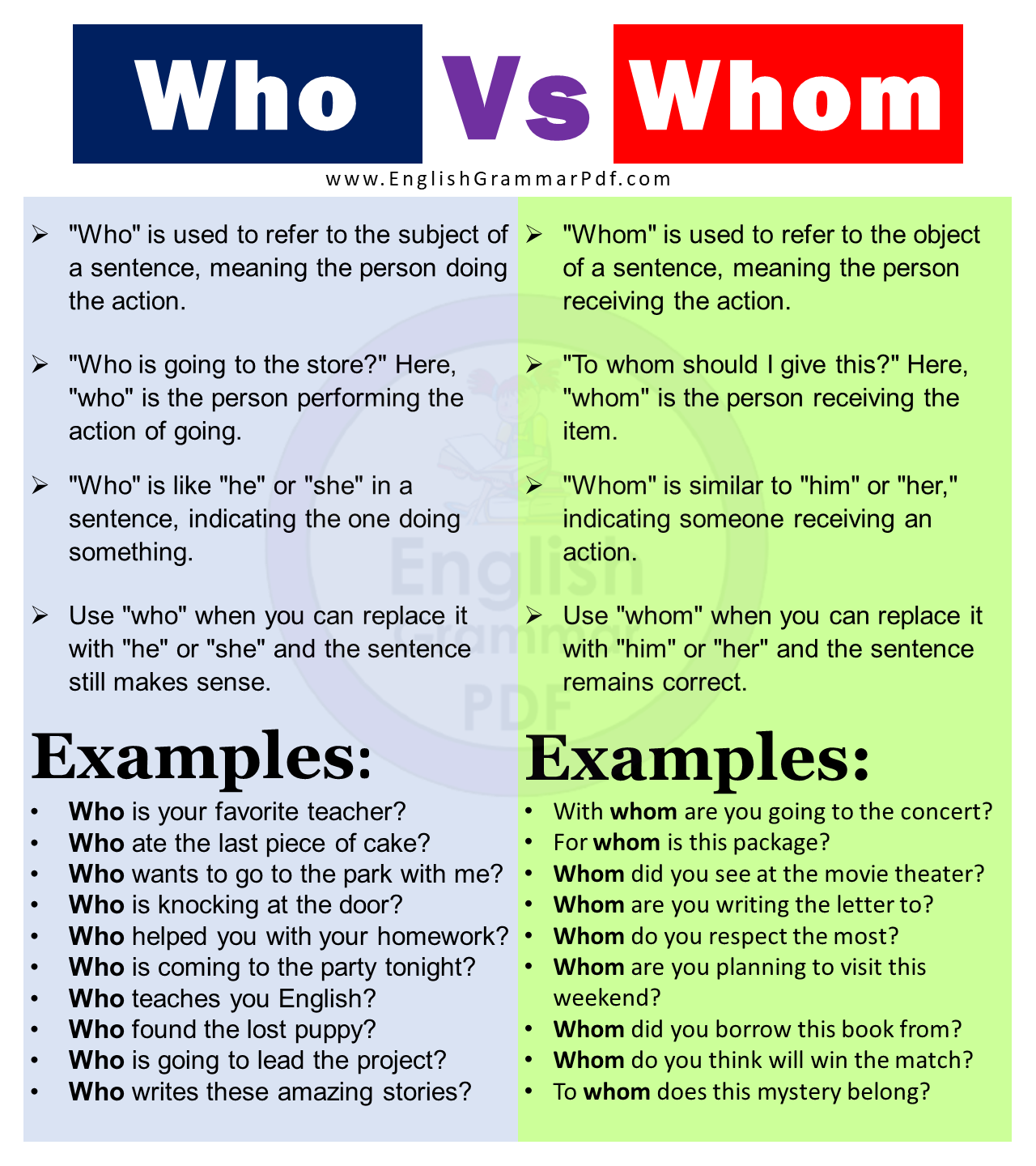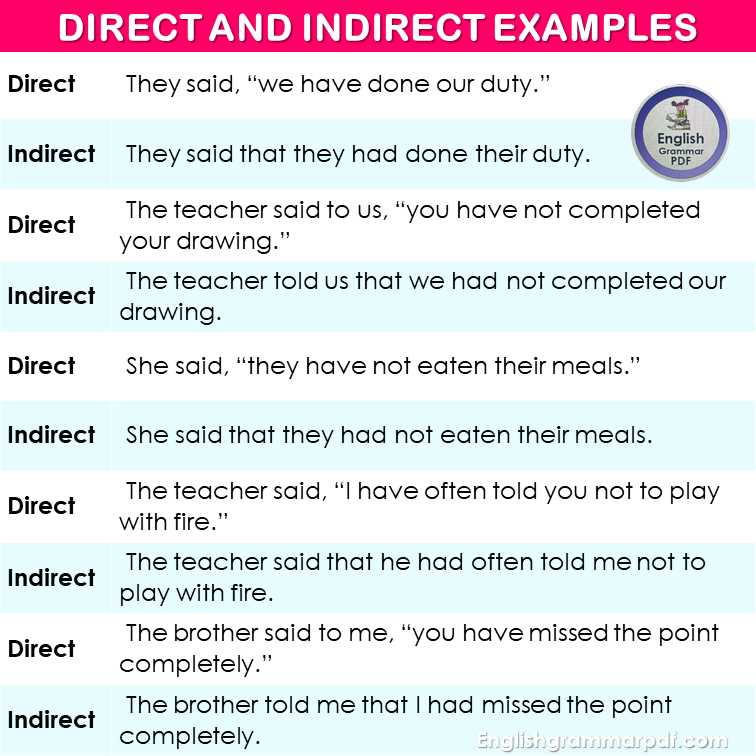Understanding “who” and “whom” can be a bit tricky, but it’s really simple once you get the hang of it. Think of “who” as the person doing something and “whom” as the person receiving the action. It’s like the difference between “he” or “she” (who) and “him” or “her” (whom). This small change can make your sentences clear and correct, and it’s easy to learn with a bit of practice!
Difference Between WHO VS WHOM
| Who | Whom |
| “Who” is used to refer to the subject of a sentence, meaning the person doing the action. | “Whom” is used to refer to the object of a sentence, meaning the person receiving the action. |
| “Who is going to the store?” Here, “who” is the person performing the action of going. | “To whom should I give this?” Here, “whom” is the person receiving the item. |
| “Who” is like “he” or “she” in a sentence, indicating the one doing something. | “Whom” is similar to “him” or “her,” indicating someone receiving an action. |
| Use “who” when you can replace it with “he” or “she” and the sentence still makes sense. | Use “whom” when you can replace it with “him” or “her” and the sentence remains correct. |
Using Who
Who is a word we use when we’re talking about someone doing an action. It’s just like saying “he” or “she” when we talk about people. When you’re asking about who did something, you’re looking for the person in charge of the action.
Examples Using Who
- Who is your favourite teacher?
- Who ate the last piece of cake?
- Who wants to go to the park with me?
- Who is knocking at the door?
- Who helped you with your homework?
- Who is coming to the party tonight?
- Who teaches you English?
- Who found the lost puppy?
- Who is going to lead the project?
- Who writes these amazing stories?
- Who is calling me at this hour?
- Who made this beautiful painting?
- Who can solve this math problem?
- Who is your best friend in school?
- Who is going to clean up this mess?
Using Whom
Whom is used when we’re talking about someone who is receiving an action, similar to “him” or “her”. For example, if you’re asking to whom a letter was sent, you’re asking about the receiver, not the person who sent it.
Examples Using Whom
- To whom did you give the book?
- Whom are you going to invite to your birthday party?
- Whom did the teacher praise for good work?
- Whom should I ask for directions?
- With whom are you going to the concert?
- For whom is this package?
- Whom did you see at the movie theater?
- Whom are you writing the letter to?
- Whom do you respect the most?
- To whom should we send the thank you note?
- Whom did they choose as the team captain?
- Whom are you planning to visit this weekend?
- Whom did you borrow this book from?
- Whom do you think will win the match?
- To whom does this mystery belong?



